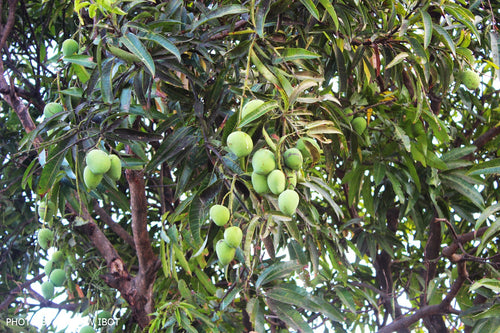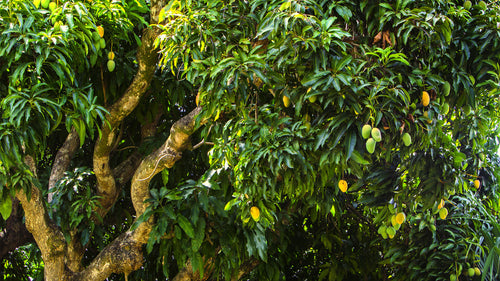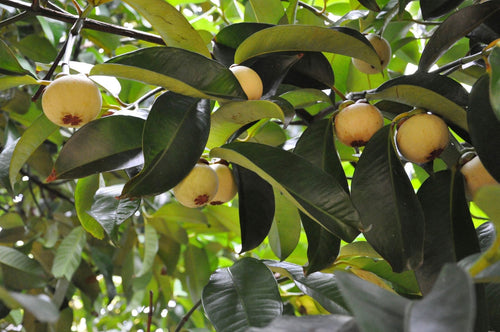"Pune Goes Green: Gensol’s Agroforestry Journey for Employee and Ecosystem"
Gensol Pune's tree plantation initiative brings employees together through an impactful agroforestry approach, blending sustainable practices with mea Read more
Project Update 2
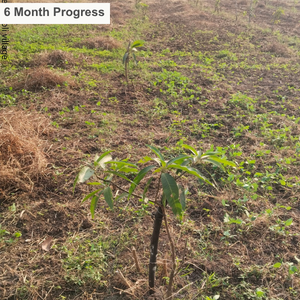
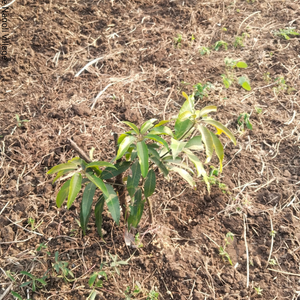
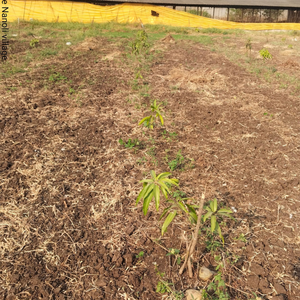
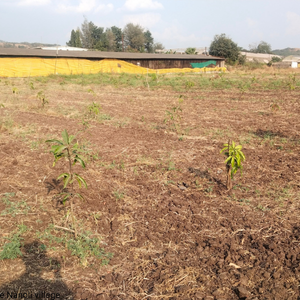
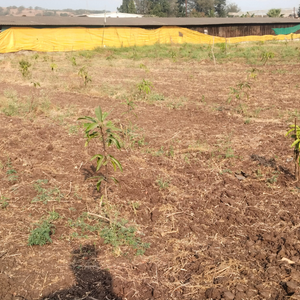
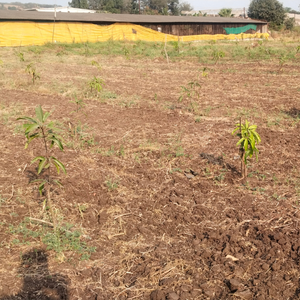
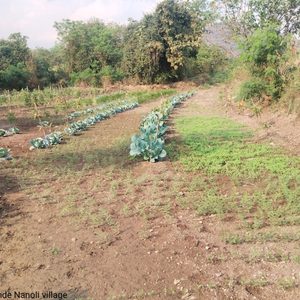
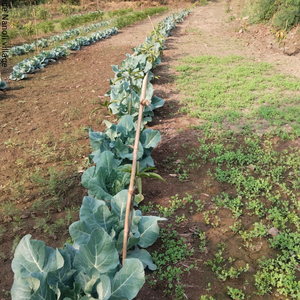
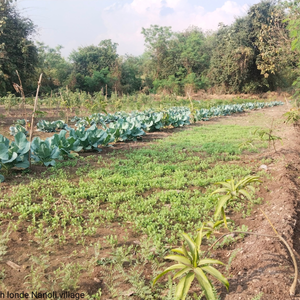
Project Update 1
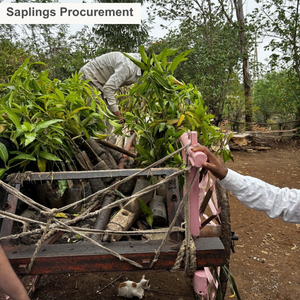
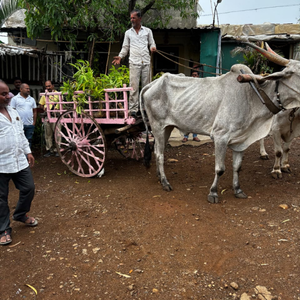
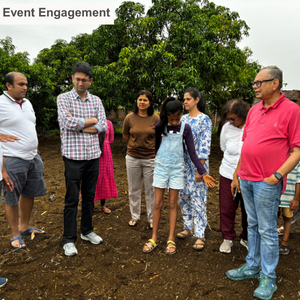
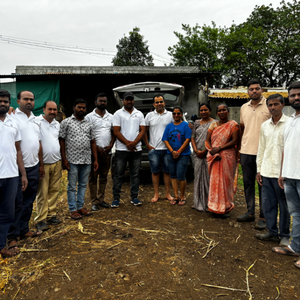

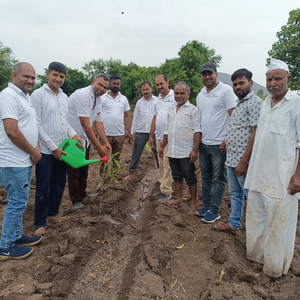
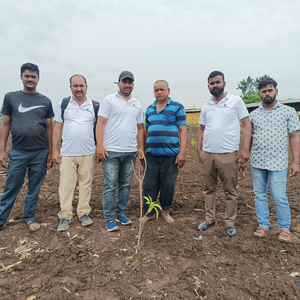
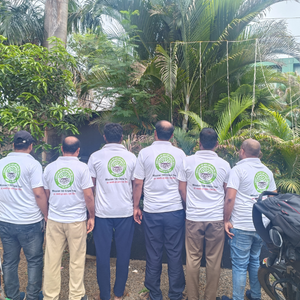
Digital Forest
Forest with 1,100 Trees planned
Want to plant your tree now?
Plant a Tree @ 299Trees Planted
"Pune Goes Green: Gensol’s Agroforestry Journey for Employee and Ecosystem"
Gensol Pune's tree plantation initiative brings employees together through an impactful agroforestry approach, blending sustainable practices with meaningful team engagement. As employees participate in planting and nurturing trees in local agroforest areas, they develop a closer connection to nature and to each other. This initiative reflects Gensol’s commitment to environmental stewardship and aims to create a green legacy by promoting biodiversity, supporting soil conservation, and enhancing carbon sequestration.
The project also serves as a valuable hands-on learning experience, allowing employees to witness firsthand the positive impact of regenerative agriculture and sustainable forestry. Through their active involvement in agroforestry, Gensol Pune employees are inspired to deepen their sense of purpose, responsibility, and teamwork, contributing not only to a greener Pune but also to a globally sustainable future.
Tree Plantation Date
5th June 2024
Plantation Location
Village Nanoli, tehsil Maval, District Pune, Maharashtra 410405
Trees Planted
Total Count: 1100 Trees
Species Name: Mango
Forest Type: Agroforest
The Agroforestry initiative spearheaded by Gensol is an ambitious project designed to fundamentally reshape rural environments, turning them into vibrant, lush green havens. This initiative aims to strategically plant a diverse array of trees throughout various areas, with the specific goal of addressing multiple environmental challenges. By increasing the number of trees, Gensol endeavors to significantly mitigate carbon emissions, which is a critical factor in combating the adverse effects of climate change. Moreover, this initiative promotes sustainable rural development by enhancing green spaces, thereby improving air quality, providing habitats for wildlife, and offering residents increased opportunities for recreation and relaxation amidst nature. Through these efforts, Gensol demonstrates a profound commitment to fostering a healthier, more sustainable future for rural communities.
Advantages of Agroforestry
Enhanced Biodiversity
Agroforestry supports diverse plant and animal species, enriching ecosystems and creating habitats that encourage biodiversity in otherwise monoculture-dominated landscapes.
Soil Health Improvement
Tree roots help stabilize soil, preventing erosion and improving nutrient content through organic matter, which benefits adjacent farmland and enhances crop productivity.Carbon Sequestration
By planting trees in agroforests, Gensol helps capture and store atmospheric carbon, contributing to a reduction in greenhouse gases and supporting climate resilience.Water Conservation
Trees enhance soil’s water retention ability, reducing water runoff and improving groundwater recharge, crucial for regions that face water scarcity.Employee Engagement and Environmental Awareness
This initiative fosters a connection between employees and the environment, allowing them to learn about sustainable practices and actively participate in climate-positive actions.Enhanced Local Livelihoods
Agroforestry can contribute to the local economy by providing resources like fruits, nuts, and medicinal plants, benefiting communities near Gensol's planting sites.Long-Term Ecosystem Stability
Agroforestry supports a sustainable and resilient landscape that balances economic, ecological, and social goals, aligning with Gensol's commitment to environmental stewardship and positive community impact.
Activities During Plantation
In Gensol's agroforest tree plantation initiative, employees actively participate in planting and watering saplings, contributing to the creation of a sustainable, biodiverse landscape. With the site pre-prepared for the activity, teams focus on carefully planting each tree, ensuring the roots are set for healthy growth within the agroforest setting. Employees then water the newly planted trees, fostering a sense of responsibility for nurturing the land. This hands-on experience allows participants to directly support Gensol's commitment to sustainable land management, deepening their connection to environmental stewardship through impactful, eco-focused action.
Tree Plantation Purpose
Through its agroforest tree plantation initiative, Gensol supports several United Nations Sustainable Development Goals (SDGs) by combining environmental stewardship with employee engagement. Here are the SDGs that Gensol contributes to through this initiative:
1. SDG 6: Clean Water and Sanitation
Trees in agroforests play a crucial role in water conservation by improving groundwater recharge and reducing soil erosion. Gensol’s initiative helps protect water sources by stabilizing the soil and preventing runoff, thereby supporting cleaner water systems. Employees directly contribute to these conservation efforts, recognizing how agroforestry can sustain essential water resources.
2. SDG 8: Decent Work and Economic Growth
Agroforestry supports the local economy by creating employment opportunities, especially in rural areas where such initiatives are based. By engaging employees in this work, Gensol helps promote sustainable, green jobs that enhance livelihoods while protecting the environment. The initiative also cultivates skills and awareness that contribute to a broader understanding of eco-friendly economic practices.
3. SDG 11: Sustainable Cities and Communities
This initiative supports the vision of sustainable, greener communities by integrating forestry practices that benefit both the environment and society. Agroforests close to urban areas reduce the urban heat island effect and improve air quality, enhancing urban resilience. Gensol employees play a part in building sustainable green spaces that contribute to healthier communities.
4. SDG 12: Responsible Consumption and Production
Gensol’s agroforestry approach encourages sustainable land use by integrating tree planting with agriculture, optimizing natural resources. This practice enhances soil fertility and water retention without relying on artificial fertilizers or excessive irrigation. Employees gain an understanding of responsible production practices, recognizing the balance between resource use and environmental health.
5. SDG 13: Climate Action
By planting trees, Gensol actively contributes to carbon sequestration, helping to mitigate the impacts of climate change. Trees in agroforests absorb CO₂, reducing greenhouse gases and aiding in climate resilience. This initiative also raises employee awareness of climate action, making them advocates for sustainable practices both inside and outside the workplace.
6. SDG 15: Life on Land
Agroforestry promotes biodiversity, supporting diverse plant and animal species and protecting natural habitats. Through the plantation of native species, Gensol’s agroforest contributes to ecosystem restoration and soil health, which is crucial for sustaining biodiversity. Employees engaged in planting learn about the importance of conserving natural ecosystems and how such efforts contribute to a balanced environment.
Gensol’s agroforest tree plantation initiative for employee engagement contributes meaningfully to Environmental, Social, and Governance (ESG) goals, aligning its business practices with sustainable and ethical standards.
Environmental (E)
Gensol’s initiative supports the environment by promoting carbon sequestration, improving biodiversity, and enhancing soil health through agroforestry. By planting trees in agroforest areas, the initiative mitigates greenhouse gas emissions and creates habitats for local wildlife, which positively impacts biodiversity. The sustainable use of land and water resources in the agroforest system helps combat soil erosion and supports groundwater recharge, strengthening Gensol’s commitment to environmental protection and responsible resource management.
Social (S)
The tree plantation activity fosters a sense of community and environmental responsibility among Gensol employees, creating an opportunity for team-building while contributing to a sustainable cause. The project enhances local communities by generating green spaces, which can also improve air quality and create a healthier ecosystem. Additionally, agroforestry contributes to local livelihoods by providing a sustainable source of agricultural resources, contributing to food security and economic stability for surrounding communities.
Governance (G)
Grow Billion Trees has played a pivotal role in helping Gensol achieve strong Governance in its ESG framework through the tree plantation initiative in the agroforest concept. By collaborating with Grow Billion Trees, Gensol ensures that its sustainability practices align with established environmental standards and best practices. This partnership enhances transparency and accountability in the planning and execution of tree planting activities, providing a structured approach to monitoring and reporting on the initiative's impact. Furthermore, Grow Billion Trees brings expertise in agroforestry and community engagement, enabling Gensol to effectively integrate stakeholder feedback and maintain ethical practices throughout the project. This alignment with governance principles not only reinforces Gensol’s commitment to corporate social responsibility but also strengthens its reputation as a responsible and sustainable business.
Commitment by Grow Billion Trees
Grow Billion Trees is committed to driving sustainable plantation efforts, ensuring every initiative aligns with key environmental objectives and promotes long-term ecological balance. They focus on selecting native tree species that are well-adapted to local ecosystems, ensuring a higher survival rate and stronger environmental impact.
To maintain plant health and longevity, Grow Billion Trees emphasizes continuous maintenance and regular monitoring of the plantations. This approach helps ensure that each tree thrives, contributing effectively to both biodiversity and climate resilience.
Transparency is a core principle in their operations. Clients receive comprehensive reports, including geo-tagging of planted trees, survival rate updates, and ongoing progress reports. This level of openness allows clients to track the direct impact of their contributions, reinforcing trust and accountability.
Through their dedication to sustainable practices, Grow Billion Trees ensures that every plantation project leaves a lasting positive footprint on both the environment and the local communities it serves.
Summary
Gensol's tree plantation initiative is a dynamic employee engagement program focused on agroforestry, blending environmental sustainability with agricultural productivity. This initiative encourages employees to actively participate in planting native trees alongside agricultural crops, fostering a symbiotic relationship that enhances biodiversity while boosting soil health. By integrating trees into farming practices, Gensol not only contributes to reforestation efforts but also provides employees with a hands-on opportunity to connect with nature and understand the benefits of agroforestry. This initiative promotes teamwork, instills a sense of environmental responsibility, and supports Gensol’s commitment to sustainability. Ultimately, the program aims to create thriving agroforestry systems that benefit both the environment and the agricultural community, reflecting Gensol’s dedication to creating a greener, more sustainable future for all.
Trees for Corporates
Trending
Most Popular
1. Sustainable Forestry
trees that provide shade, clean air, and habitat for critters while also giving us those perfect timber beams. It’s like having your cake and eating it too—except this cake grows back every year! By practicing sustainable forestry in our agroforest initiatives, Gensol is committed to ensuring that future generations can enjoy lush landscapes and abundant resources. So, let’s plant those trees, count them, and watch as nature gives us the green thumbs-up. After all, what’s better than getting your hands dirty for a cause that keeps our planet smiling?
2. Biodiversity Conservation
When it comes to biodiversity conservation, Gensol is all about saving the planet one tree at a time! Think of biodiversity as the ultimate party mix—everyone has a role, from the towering trees to the tiniest critters. Our agroforest initiative creates a vibrant habitat where various species can thrive, making it the hottest spot for nature’s socialites. Why should you care? Because a diverse ecosystem means more resilience against pests, diseases, and climate changes—just like having a well-rounded friend group ready to tackle life’s challenges together! With Gensol’s focus on planting diverse native species, we’re not just building forests; we’re creating nature’s version of an all-you-can-eat buffet! Join us in the effort to keep our forests lively and diverse. After all, who wants a forest that looks like a monotonous sock drawer?
3. Carbon Sequestration
Ah, carbon sequestration—the not-so-secret superhero of climate change mitigation! At Gensol, we like to think of our trees as Mother Nature’s personal trainers, sucking up carbon dioxide like they’re at a gym trying to get ripped. Our agroforest initiative actively captures CO₂ from the atmosphere, storing it in the form of wood and soil. So, when you plant a tree with us, you're not just giving a gift to future generations; you're also contributing to a cleaner, healthier planet. It’s like turning your backyard into a carbon-absorbing factory! As trees grow, they help mitigate climate change while providing shade and beauty. Who knew being eco-friendly could be so rewarding? So let’s plant more trees and let them do the heavy lifting—after all, they don’t mind working out a bit for the environment!
4. Community Engagement
Gensol’s tree plantation initiative is all about community engagement, and guess what? Trees are the ultimate icebreakers! Imagine gathering a group of people, armed with shovels and saplings, ready to dig in for a greener future. Our agroforest activities are not just about planting trees; they’re about building connections within the community. When you get your hands dirty alongside neighbors, you create lasting friendships over shared goals and good vibes! Plus, nothing brings a community together quite like the prospect of a shaded park or a place to watch the sunset. At Gensol, we believe that the more people involved, the stronger the roots—literally and figuratively! So come join us in this leafy adventure and let’s make the world a greener, friendlier place, one tree at a time.
5. Environmental Stewardship
Environmental stewardship is like being the cool parent of the planet—you want to nurture, protect, and occasionally lecture it about recycling! Gensol is stepping up to the plate with our agroforest initiative, where we take our role as responsible caretakers seriously. We’re not just planting trees; we’re fostering a culture of care and responsibility towards our natural resources. This means educating our employees and the community on sustainable practices that help maintain the delicate balance of our ecosystems. Think of us as the eco-friendly version of a life coach, guiding everyone towards greener habits. When we engage in environmental stewardship, we’re not just ensuring our forests flourish today; we’re investing in the health of our planet for tomorrow. So let’s embrace our inner eco-warrior and commit to keeping our planet healthy and happy!
6. Soil Health
Soil health is the unsung hero of our agroforest initiative, and Gensol is giving it the spotlight it deserves! Think of soil as the planet’s foundation, and just like any good building, it needs to be strong and healthy. Our tree planting efforts help improve soil quality by reducing erosion, enhancing nutrient retention, and promoting the growth of beneficial microorganisms. It’s like giving the earth a nourishing smoothie that boosts its vitality! With every tree planted, we’re not just greening the landscape; we’re revitalizing the very ground beneath our feet. Healthy soil means healthier trees, which in turn leads to a thriving ecosystem. So let’s dig in, literally! Supporting soil health isn’t just about aesthetics; it’s about ensuring a sustainable future for agriculture and biodiversity.
7. Climate Resilience
When it comes to climate resilience, Gensol’s agroforest initiative is like building a muscle against the unpredictable weather of our times! Trees are nature’s buffer against storms, floods, and heatwaves, and by planting more of them, we’re fortifying our defenses. Imagine trees standing tall like guardians, absorbing excess rainwater and providing shade to cool down our cities. Gensol’s efforts in creating urban forests contribute to climate resilience by stabilizing local ecosystems and supporting wildlife. This isn’t just a feel-good story; it’s about preparing for the future! As we plant trees, we’re not only enhancing beauty but also ensuring that our communities can adapt and thrive amid climate challenges. So let’s roll up our sleeves and plant those trees; after all, a resilient community is a happy community!
8. Agroforestry Practices
crops growing alongside trees, creating a harmonious ecosystem that benefits all. Our initiative focuses on implementing agroforestry techniques that boost productivity while preserving natural resources. Trees provide shade for crops, prevent soil erosion, and even enhance biodiversity—all while helping to produce delicious fruits and nuts. It’s like hosting a potluck dinner where everyone brings a dish that compliments the others! By embracing agroforestry, Gensol demonstrates that you can cultivate the land while nurturing the environment. So let’s dig into these practices and cultivate a greener future, one tree and crop at a time!
FAQ
What is the purpose of Gensol's tree plantation initiative in agroforestry?
Gensol’s tree plantation initiative aims to enhance agroforestry by integrating tree planting with agricultural practices. This program not only contributes to environmental sustainability but also improves soil health, increases biodiversity, and provides additional income sources for farmers. By actively involving employees in this initiative, we foster a sense of community and responsibility toward sustainable practices, reinforcing our commitment to creating a greener future.
How can employees participate in the tree plantation initiative?
Employees at Gensol can get involved in our tree plantation initiative by joining organized planting events and volunteering for ongoing maintenance activities. These hands-on opportunities allow team members to connect with nature while fostering teamwork and camaraderie. By participating, employees contribute to sustainable agroforestry practices that positively impact both the environment and the local community.
What types of trees are planted in the agroforest?
Gensol focuses on planting a variety of native tree species in our agroforestry initiatives. These trees are carefully selected for their compatibility with local ecosystems and agricultural crops. By prioritizing native species, we enhance biodiversity, improve soil quality, and provide habitat for wildlife. Our aim is to create a balanced ecosystem that benefits both agriculture and the environment.
What are the benefits of agroforestry for the environment?
Agroforestry offers numerous environmental benefits, including enhanced biodiversity, improved soil health, and better water retention. By integrating trees into agricultural landscapes, we create habitats for various species while reducing soil erosion and increasing carbon sequestration. These practices help mitigate climate change and contribute to a more resilient ecosystem, ultimately promoting a healthier environment for future generations.
How does Gensol's initiative align with corporate social responsibility (CSR) goals?
Gensol’s tree plantation initiative aligns seamlessly with our corporate social responsibility goals by demonstrating our commitment to sustainability and community engagement. By promoting agroforestry, we not only enhance the environment but also support local farmers and communities. This initiative reinforces our dedication to responsible business practices and positively impacts the communities in which we operate.
What role does community involvement play in the tree plantation initiative?
Community involvement is vital to Gensol’s tree plantation initiative. We actively engage local residents in planting and caring for trees, fostering a sense of ownership and pride in their environment. This collaboration strengthens community ties and raises awareness about the importance of agroforestry, encouraging collective action toward sustainable practices that benefit both the environment and the community.
How does tree planting improve agricultural productivity?
Tree planting enhances agricultural productivity by improving soil health and providing shade and shelter for crops. Trees contribute organic matter to the soil, enhance nutrient cycling, and help retain moisture, leading to better crop yields. Additionally, agroforestry practices can reduce pests and diseases, promoting healthier crops and increased resilience to climate change, ultimately benefiting farmers' livelihoods.
What are the long-term goals of Gensol's tree plantation initiative?
Gensol’s long-term goals for the tree plantation initiative include increasing the number of trees planted each year and expanding our agroforestry efforts. We aim to create sustainable ecosystems that support biodiversity while enhancing agricultural productivity. By focusing on education and community involvement, we strive to foster a culture of sustainability that extends beyond our immediate impact, benefiting future generations.
How can local residents support Gensol's tree plantation initiative?
Local residents can support our tree plantation initiative by participating in community events, volunteering to plant trees, and advocating for sustainable agricultural practices. By joining hands with Gensol, residents can play an active role in enhancing their local environment. Spreading awareness about the benefits of agroforestry and encouraging others to get involved can significantly contribute to the success of our initiative.
What future plans does Gensol have for the tree plantation initiative?
Gensol plans to expand our tree plantation initiative by increasing partnerships with local organizations and farmers, further integrating agroforestry into our sustainability efforts. We aim to develop educational programs that promote the benefits of agroforestry and sustainable practices. By continuing to engage employees and the community, we seek to create a lasting impact on the environment and foster a greener future for all.
- Choosing a selection results in a full page refresh.
- Opens in a new window.


